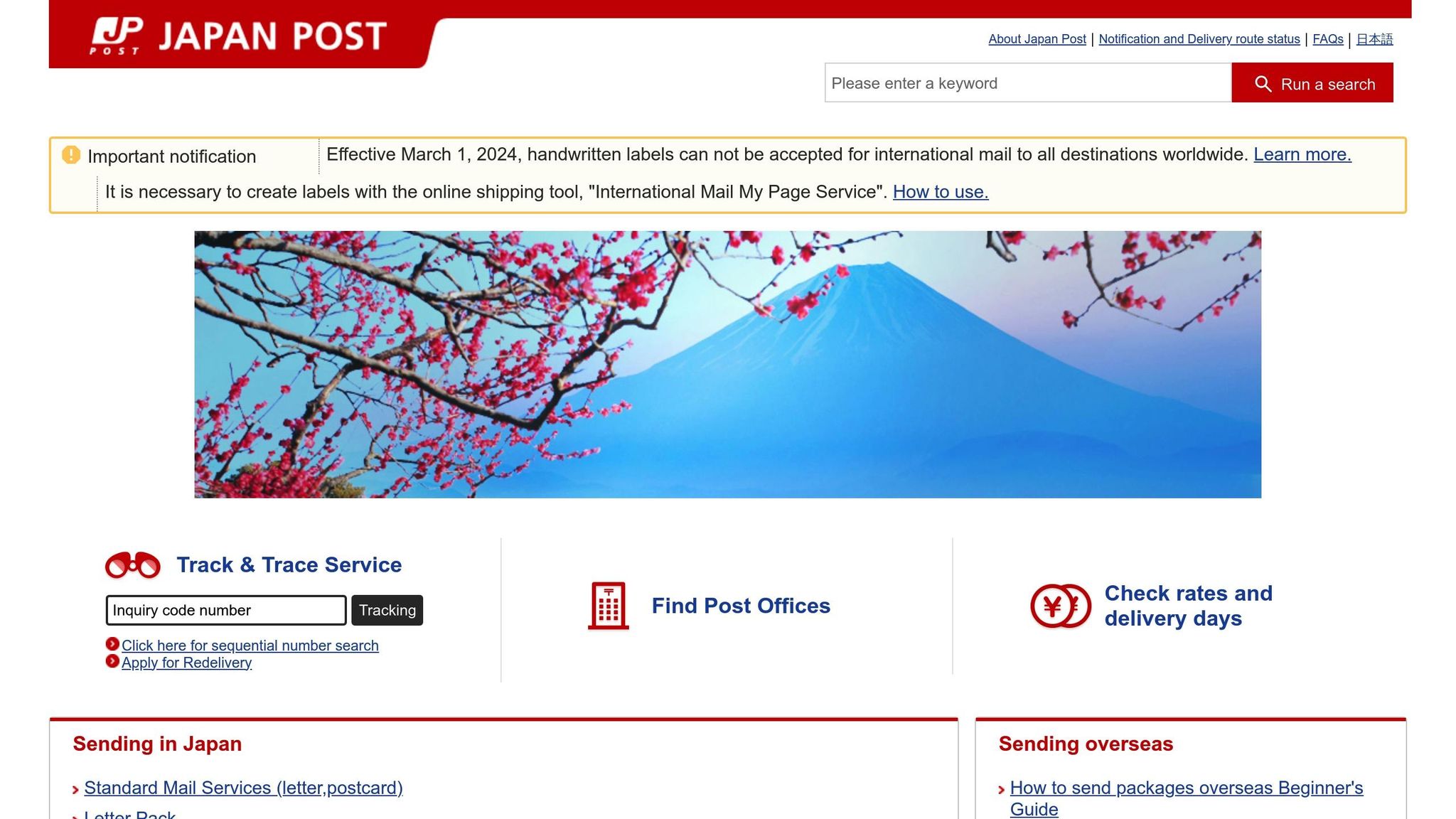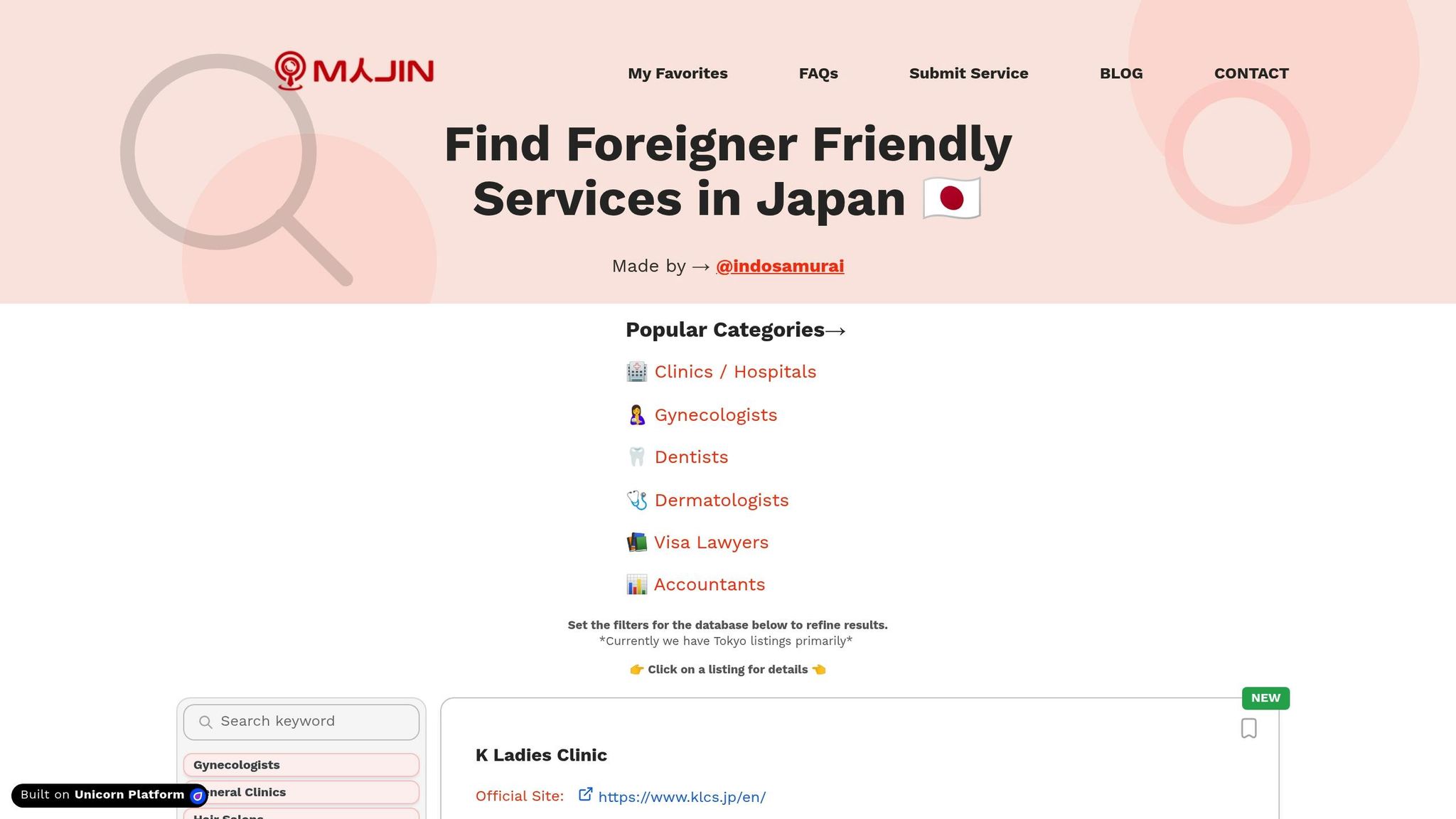Opening a bank account in Japan depends heavily on your residency status. Here's what you need to know:
- Residency Duration: Most banks require at least six months of residency, but exceptions exist. For example, Japan Post Bank (Yucho) allows accounts without the six-month rule, and Mizuho Bank may approve accounts for those with proof of stable employment after three months.
- Essential Documents: You'll need a Residence Card, certificate of residence (Juminhyo), passport, and sometimes a personal seal (hanko). A My Number card or notification letter is also required.
- Short-Term Visitors: Traditional accounts are not available for stays under 90 days. Alternatives include prepaid cards and remittance services like Wise or Western Union.
- Language Barriers: Many banks operate in Japanese. Some, like SBI Shinsei or SMBC Trust Bank Prestia, offer English-language support, but options are limited.
Quick Tip: For newcomers, Japan Post Bank is the most accessible option, while online banks may have stricter requirements and language limitations.
Navigating Japan's banking system can be challenging, but with the right documents and preparation, you can find a solution that fits your needs.
Basic Residency Requirements and Exceptions
Requirements for Foreign Residents
In Japan, banks typically have specific rules for foreign residents, often tied to their residency status. To open a standard bank account, you’ll usually need to hold long-term residency status. One key document for this process is the Residence Card (在留カード, Zairyū Kādo), which serves as proof of your residency.
Additionally, banks require supporting documents like your passport and certificate of residence (Juminhyo) to verify your identity and address. Since most application processes are conducted in Japanese, having a bilingual assistant can be helpful if you’re not fluent in the language.
Exceptions for Newcomers and Short-Term Residents
If you’re new to Japan or staying for a shorter period, some banks offer more accommodating options. Japan Post Bank (Yucho) is often recommended because it doesn’t require a six-month residency period or proof of employment to open an account.
Other banks, like Mizuho Bank, may allow account openings after just three months if you’re employed. In fact, Mizuho Bank might even waive the six-month residency rule if you provide proof of stable employment with a Japanese company. This flexibility can be a lifeline for newcomers who need banking services right away.
Providing proof of employment is crucial, as it shows financial stability and increases the likelihood of account approval.
For foreigners seeking a smoother experience, banks such as SBI Shinsei, SMBC Trust Bank Prestia, and Sony Bank are often highlighted for their foreigner-friendly services. Many of these institutions offer English-language support and simplified procedures tailored to international customers. With the right preparation, you can successfully open an account at most banks in Japan.
Next, we’ll explore the types of banks in Japan and how their policies vary regarding these requirements.
The 6-Month Wait for a Japanese Bank Account: What Every Foreigner Needs to Know
Types of Banks and Their Policies
Banks in Japan have varying policies when it comes to residency requirements and documentation for foreign applicants. Knowing these differences can guide you in selecting the bank that best fits your needs.
Major Banks and Their Requirements
Japan's major banks - MUFG (Mitsubishi UFJ Financial Group), SMBC (Sumitomo Mitsui Banking Corporation), and Mizuho Bank - have stricter policies for foreign applicants compared to other banking options. These banks typically require proof of residency and additional documentation.
For example, MUFG mandates that non-Japanese nationals must either hold full-time employment in Japan (excluding part-time or temporary jobs) or have lived in the country for at least six months. If your visa has less than four months remaining, you'll need to renew it before applying. Additionally, all applicants must visit a branch in person and provide documents like a residence card, personal seal (hanko), My Number documents, and proof of employment, such as a health insurance card with your employer's name or a stamped withholding tax statement.
Japan Post Bank for Foreigners

For newcomers, Japan Post Bank (JP Bank) is a more accessible option. Unlike the major banks, JP Bank does not impose a six-month residency requirement or demand an employment contract. This makes it a convenient choice for those who have just arrived in Japan.
JP Bank also boasts an extensive network, with 234 branches nationwide, covering cities, towns, and even rural areas. Its wide reach and flexibility make it a practical solution for many foreign residents.
Online Banks and Digital Options
Online banks simplify the account-opening process but still require basic proof of residency. Most online banks, like their traditional counterparts, expect applicants to have lived in Japan for at least six months or to be employed. However, some online banks offer enhanced language support, which can be a relief for non-Japanese speakers.
It’s worth noting that Sony Bank stopped accepting new English-language account applications in June 2025. While existing customers can still access the English portal, new applicants now need sufficient Japanese language skills to use the standard platform. Similarly, Rakuten Bank provides its services primarily through an app available only in Japanese via local app stores. These language and residency hurdles mean online banks may not be the best option for newly arrived foreign residents.
Application Process and Required Documents
Opening a bank account in Japan can feel like navigating a maze of paperwork, but being well-prepared can save you a lot of hassle. Missing or incomplete documents are a common cause of delays.
Required Documents for Applications
If you're a foreign resident in Japan, you'll need to gather specific documents before heading to the bank or starting an online application. Here's what you’ll typically need:
- Residence card (zairyu card): This confirms your visa status and registered address.
- Passport: Used for identity verification.
- My Number card or notification letter: Required for tax and identification purposes.
- Proof of address: This could be a residence certificate or a utility bill.
- Personal seal (hanko): Many traditional banks still require one, though some may accept a signature instead.
- Japanese phone number: Necessary for SMS verification and callbacks during the application process.
| Document | Purpose |
|---|---|
| Residence Card (zairyu card) | Confirms visa status and registered address |
| Residence Certificate/Utility Bill | Verifies your registered address |
| Japanese Phone Number | For SMS verification and bank callbacks |
| Passport & My Number Card/Notice | For identity checks |
| Personal Seal (inkan) | Required by many traditional banks |
Keep in mind that requirements can vary depending on the bank. Some banks might also ask for additional documents, like proof of employment or a student ID if you're a student. It’s always a good idea to check the specific requirements of your chosen bank before applying.
How to Apply Step by Step
Once you’ve got your documents ready, it’s time to dive into the application process. Whether you apply in person or online, the steps are fairly structured. Some modern banks, like SMBC Trust Bank Prestia, allow smartphone applications where you can verify your ID using just your residence card and a selfie. Similarly, Japan Post Bank and Sony Bank let you open accounts through their mobile apps.
For a more traditional route, follow these steps:
- Prepare your documents: Double-check that everything is accurate and up-to-date. Consistency in your name across all documents is critical. For example, if your passport includes a middle name, you might need to register a legal alias at your city hall to align with your residence card.
- Visit the bank or apply online: Head to the branch or use the bank’s online platform. Fill out the application forms carefully, ensuring all details match your documents exactly. Some banks may require an initial deposit to activate the account.
- Verification process: The bank will review your application and documents. Processing times can vary. For instance, SBI Shinsei Bank offers mail and online applications and even supports online international remittance services. However, their "online" process involves completing a form online, receiving a printed application, and mailing back copies of your ID.
- Receive your banking kit: After your application is approved, you’ll receive your banking materials. This could take anywhere from a few days to several weeks, depending on the bank's procedures.
"Like most bureaucratic processes in Japan, opening an account can take quite a bit of time and paperwork, but is ultimately doable, not to mention beneficial in the long run." - Rebecca Callahan, TokyoDev
If you’re not confident with the Japanese language, consider bringing along a Japanese-speaking friend to help with the process. Double-checking your application form and ensuring all your documents are consistent will go a long way in avoiding delays.
sbb-itb-cbc0cbb
Options for Short-Term Visa Holders
If you're visiting Japan on a tourist visa or staying for less than 90 days, opening a traditional bank account isn't an option. While living and working without a bank account is possible, any account you do open will likely be classified as a non-resident account, which comes with limited services.
Given the strict residency requirements in Japan, short-term visitors need to explore alternative financial tools. Below are some options, including limited account formats and remittance services tailored for short-term stays.
Limited Accounts and Prepaid Cards
Japan Post Bank (Yucho) is often mentioned as a more accessible choice for short-term residents. However, there's a catch: the so-called "address–phone–bank paradox." To open an account, you typically need a phone contract, which can be resolved by using prepaid SIM cards.
If you're working on a short-term basis, submitting a letter from your employer can improve your chances of account approval. Online banks may offer faster account setups, but many require proficiency in Japanese. It's also a good idea to apply at multiple branches, such as those near your home, school, or workplace, as approval criteria can vary.
For those who find these limited banking options insufficient, dedicated money transfer services can be a practical alternative.
Money Transfer and Remittance Services
For short-term visitors, international money transfer services like Wise, Western Union, and Remitly provide competitive fees and flexible options. Wise is often highlighted as a cost-effective choice compared to traditional bank transfers.
Western Union's fees and exchange rates depend on the payment and payout methods. They also run promotions, such as a ¥0 transfer fee for first-time online transfers to countries like the Philippines, India, or Indonesia when using bank transfer funds-in. Similarly, Remitly offers a special no-fee rate on the first transfer for new users.
If you prefer using Japan Post Bank for remittances, expect a fixed fee of ¥7,500 per transfer, regardless of the amount. Alternatively, SMBC offers its "SMBC Direct" service, which typically has lower fees than in-person bank transfers.
Before choosing a service, compare fees, exchange rates, and transfer limits to find the best fit for your needs. Check whether a My Number is required for the service and verify if transfers can be done without it. Lastly, always double-check the recipient's details to avoid delays and ensure you're using a secure internet connection to protect your financial information.
Resources and Support for Foreigners
Navigating Japan's banking system can be tough for foreigners, thanks to language barriers and strict paperwork requirements. However, having access to the right resources and support can make opening a bank account and managing finances much easier. Tailored services are available to help bridge the understanding gap when it comes to Japan's administrative processes, especially for banking.
Banking Support Through Myjin

Myjin is a resource directory specifically designed for foreign residents in Japan. It connects users with verified English-speaking professionals who understand the challenges foreigners face with Japanese administrative tasks. Among these are visa lawyers and tax accountants, who can offer expert guidance to help meet banking requirements with ease.
What makes Myjin particularly helpful is its focus on providing reliable English support. Each listing on the platform includes essential details like official websites, contact information, and directions, making it simple to reach professionals who can assist with banking-related documentation or legal queries tied to residency.
The platform is free to use, with options for both free and premium listings for service providers. While Myjin currently focuses on services in Tokyo, there are plans to extend its reach to other parts of Japan in the future.
Additional Resources on Myjin
Myjin goes beyond banking assistance by offering tools that can strengthen your overall financial profile - something banks often evaluate during the account approval process. These resources help users better understand tax obligations and income requirements, which are key factors for foreign residents opening accounts.
This is particularly useful for short-term visa holders who may need to demonstrate financial stability despite limited residency. Myjin ensures access to interconnected services that address these administrative needs, helping you meet Japan's financial system requirements.
For those facing complex banking challenges, Myjin's network of English-speaking professionals offers the personalized support needed to navigate Japan's financial landscape - whether you're staying short-term or planning to settle long-term.
Conclusion
Navigating Japan's residency and documentation requirements is essential for accessing a variety of banking services. Once you understand these rules - especially the distinction between residents and non-residents - you'll find that opening a bank account in Japan becomes much more manageable.
Your visa type plays a big role in determining your banking options. For instance, Japan Post Bank is known for having more flexible requirements compared to traditional mega banks, provided you hold a visa valid for at least three months.
One crucial step is obtaining your Juminhyo certificate by registering your address at the local city hall. This document serves as proof of a fixed address in Japan, a requirement for opening a bank account regardless of how long you plan to stay.
For more complicated situations, Myjin offers access to professional, English-speaking experts, including verified visa lawyers and tax accountants who are well-versed in banking regulations. Their expertise can be especially valuable for navigating exceptions, such as the relaxed banking rules now available to Startup Visa holders.
Whether you're a short-term visitor considering prepaid card options or a long-term resident setting up a full banking relationship, this guide can help you identify the best path forward. For personalized assistance, Myjin is ready to provide tailored support.
FAQs
Can I open a bank account in Japan if I’ve just arrived and don’t meet the six-month residency requirement?
Opening a Bank Account in Japan
Setting up a bank account in Japan can feel tricky, especially if you’ve just arrived or are on a short-term visa. Most traditional banks have strict requirements, including a valid Residence Card (在留カード) and proof of a long-term address in Japan. These rules can make it challenging for newcomers or those without a six-month residency to open an account.
That said, there are alternatives. Some online banks and foreigner-friendly financial services cater to individuals on short-term visas or those who’ve recently arrived. These options can be a lifesaver when traditional banks aren't an option.
If you’re not sure where to begin, platforms like Myjin are worth exploring. They specialize in connecting foreigners with resources in Japan, offering guides on essential services like banking and directories of English-speaking professionals. Before heading to a bank, check their specific requirements and prepare key documents such as your passport, visa, and proof of address.
What can I do if I don’t speak Japanese but want to open a bank account in Japan?
Opening a bank account in Japan without being fluent in Japanese can seem daunting, but there are ways to simplify the process. Start by choosing banks that are known for their English-friendly services. For instance, Shinsei Bank is a favorite among foreigners for its accommodating approach. Some banks even have specialized counters or staff trained to assist non-Japanese speakers.
If language barriers still feel overwhelming, consider bringing along a trusted friend who speaks Japanese to help you navigate the paperwork. Alternatively, a translation app can be a handy tool for understanding forms and requirements. Another option is using platforms like Myjin, which connect you to services tailored for English-speaking users, making tasks like opening a bank account much easier.
To avoid any hiccups, make sure you have the necessary documents ready, such as your residence card and passport. Being prepared can save you time and help the process go smoothly.
What financial options are available for short-term visitors in Japan who can't open a bank account?
Short-term visitors in Japan who can’t open a traditional bank account have some handy alternatives: prepaid debit cards and mobile payment apps. Prepaid cards let you load Japanese yen and are widely accepted at stores, restaurants, and even ATMs. They’re a simple way to handle everyday expenses without the need for a bank account.
Mobile payment apps are another great option, especially those that work with international credit cards. These apps make cashless payments easy and are commonly used across Japan, from convenience stores to larger retailers.
For sending or receiving money, international money transfer services can be a lifesaver. They allow you to manage funds in Japan without requiring a local bank account, giving you more flexibility to handle your finances while you’re here.


